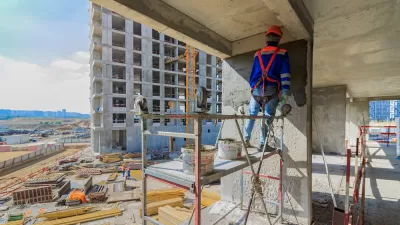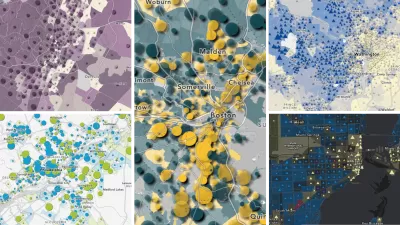New research from Trulia finds that an "economic convergence" of housing markets is not happening: the housing rich are getting richer, while the housing poor are getting poorer.

"The U.S. housing market is growing more unequal," according to an article by Ralph McLaughlin for Trulia.
McLaughlin summarizes the findings of the Trulia research shared in the post"
Over the past 30 years, prices in the 20 most expensive markets have risen much faster than prices in the 20 least expensive. What’s more, expensive markets almost always had bigger price gains compared to cheaper markets. In other words, the housing rich are getting richer while the housing poor are getting poorer.
The article includes specific data points to back up this narrative. One particular telling data point finds that the growth of San Francisco's home values has outpaced ten major U.S. cities combined (i.e., Rochester, Wichita, Fort Worth, Memphis, El Paso, Oklahoma City, Dallas, Tulsa, Greensboro-High Point, and Dayton). The article includes a lot of infographics and data to make a stark point a reality: "The financial fortune of homeowners in the U.S. has largely been determined by where they live, " and "regional disparities in home price growth may be effectively driving a geographical gap in wealth generation."
FULL STORY: Rich City, Poor City: How Housing Supply Drives Regional Economic Inequality

Planetizen Federal Action Tracker
A weekly monitor of how Trump’s orders and actions are impacting planners and planning in America.

San Francisco's School District Spent $105M To Build Affordable Housing for Teachers — And That's Just the Beginning
SFUSD joins a growing list of school districts using their land holdings to address housing affordability challenges faced by their own employees.

The Tiny, Adorable $7,000 Car Turning Japan Onto EVs
The single seat Mibot charges from a regular plug as quickly as an iPad, and is about half the price of an average EV.

Seattle's Plan for Adopting Driverless Cars
Equity, safety, accessibility and affordability are front of mind as the city prepares for robotaxis and other autonomous vehicles.

As Trump Phases Out FEMA, Is It Time to Flee the Floodplains?
With less federal funding available for disaster relief efforts, the need to relocate at-risk communities is more urgent than ever.

With Protected Lanes, 460% More People Commute by Bike
For those needing more ammo, more data proving what we already knew is here.
Urban Design for Planners 1: Software Tools
This six-course series explores essential urban design concepts using open source software and equips planners with the tools they need to participate fully in the urban design process.
Planning for Universal Design
Learn the tools for implementing Universal Design in planning regulations.
Smith Gee Studio
City of Charlotte
City of Camden Redevelopment Agency
City of Astoria
Transportation Research & Education Center (TREC) at Portland State University
US High Speed Rail Association
City of Camden Redevelopment Agency
Municipality of Princeton (NJ)





























